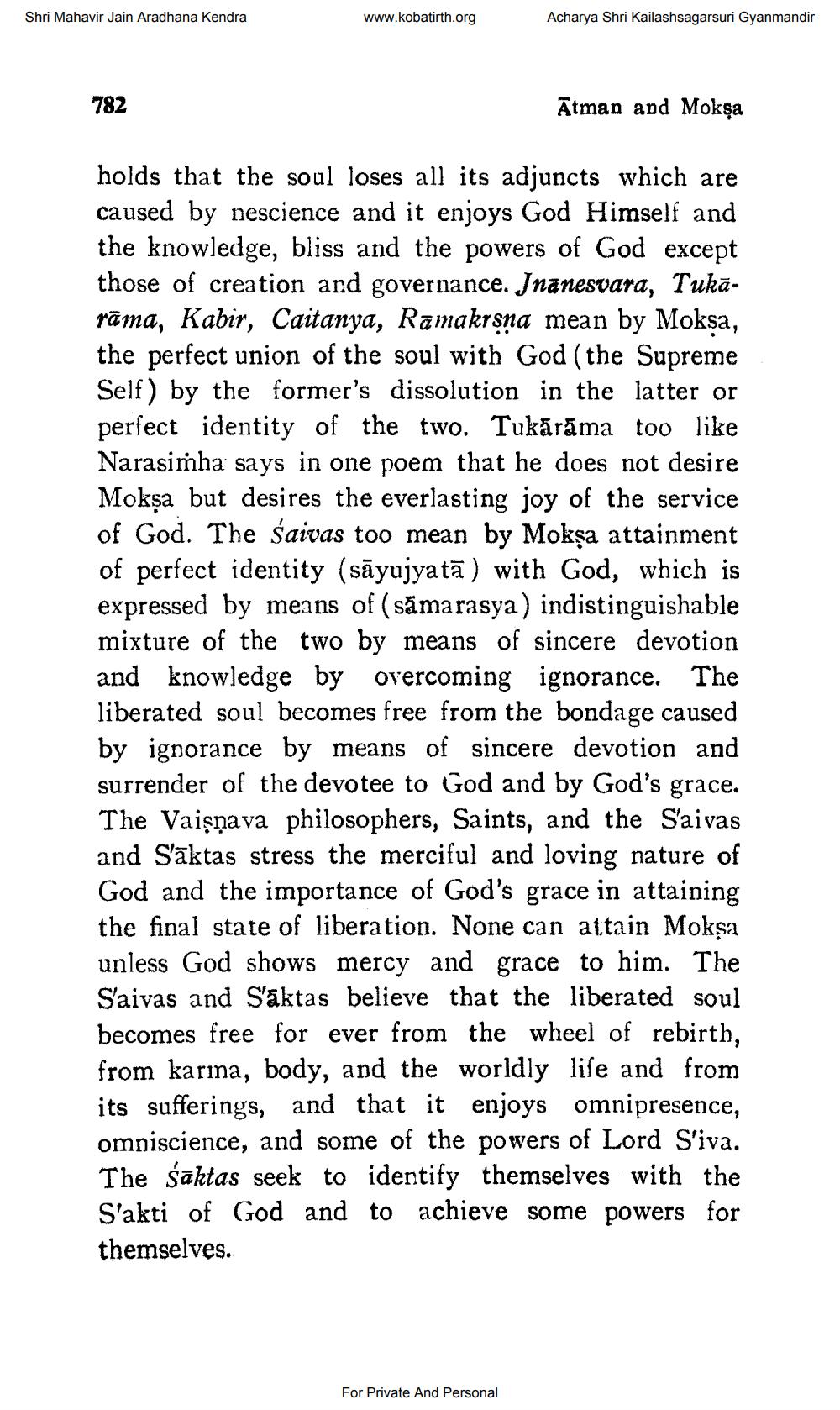________________
Shri Mahavir Jain Aradhana Kendra
www.kobatirth.org
Acharya Shri Kailashsagarsuri Gyanmandir
782
Ātman and Moksa
holds that the soul loses all its adjuncts which are caused by nescience and it enjoys God Himself and the knowledge, bliss and the powers of God except those of creation and governance. Jnanesvara, Tukarāma, Kabir, Caitanya, Ramakrsna mean by Moksa, the perfect union of the soul with God (the Supreme Self) by the former's dissolution in the latter or perfect identity of the two. Tukārāma too like Narasimha' says in one poem that he does not desire Moksa but desires the everlasting joy of the service of God. The saivas too mean by Mokşa attainment of perfect identity (sāyujyatā) with God, which is expressed by means of (sāmarasya) indistinguishable mixture of the two by means of sincere devotion and knowledge by overcoming ignorance. The liberated soul becomes free from the bondage caused by ignorance by means of sincere devotion and surrender of the devotee to God and by God's grace. The Vaişņava philosophers, Saints, and the Saivas and Sāktas stress the merciful and loving nature of God and the importance of God's grace in attaining the final state of liberation. None can attain Mokşa unless God shows mercy and grace to him. The Saivas and Sāktas believe that the liberated soul becomes free for ever from the wheel of rebirth, from karına, body, and the worldly life and from its sufferings, and that it enjoys omnipresence, omniscience, and some of the powers of Lord S'iva. The śāktas seek to identify themselves with the S'akti of God and to achieve some powers for themselves.
For Private And Personal




